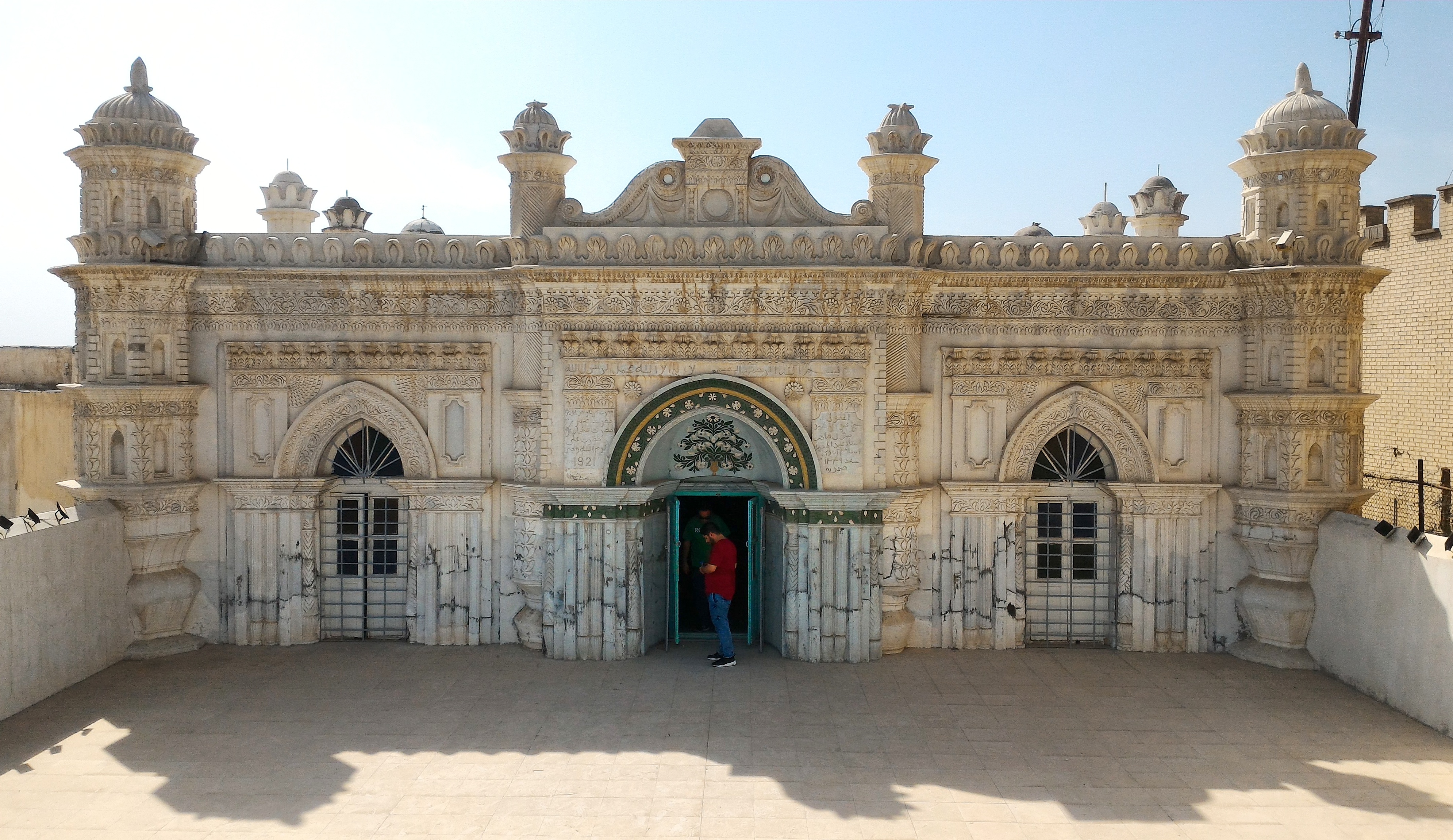
Abadan, a city located in the southwestern region of Iran, is filled with rich history and a vibrant cultural heritage. This city, with its strategic location on the shores of the Persian Gulf, has played a significant role in the country’s development and has undergone numerous transformations over the years. Abadan is known for its oil industry, which has shaped its economy and attracted people from different parts of the world. In this article, we will explore 41 fascinating facts about Abadan, shedding light on its historical significance, cultural diversity, architectural landmarks, delicious cuisine, and much more. So, buckle up and prepare to embark on a virtual journey through the enchanting city of Abadan.
Key Takeaways:
- Abadan, Iran, is a city with a rich history, vibrant culture, and a booming oil industry. Its diverse population and strategic location make it a significant and fascinating destination for visitors.
- Abadan offers a blend of history, industry, and natural beauty, with a warm and welcoming community. From oil refineries to traditional markets, the city provides a unique and enriching experience for all.
Abadan has a rich history that dates back thousands of years.
Located in the Khuzestan Province of Iran, Abadan holds significant historical importance, with evidence of human settlements in the area dating back to ancient times.
Abadan is renowned for its oil industry.
As home to one of the largest oil refineries in the world, Abadan has played a crucial role in fueling Iran’s economy and contributing to its energy industry.
The city of Abadan was established in the early 20th century.
Originally a small fishing village, Abadan transformed rapidly with the discovery of oil in the region, leading to the establishment of the city as a major industrial hub.
Abadan is situated on the border of Iran and Iraq.
Located near the Shatt al-Arab waterway, Abadan shares its borders with Iraq. This strategic location has had both economic and geopolitical significance throughout history.
Abadan has a diverse and multicultural population.
Due to its industrial importance, Abadan attracts people from various backgrounds and ethnicities, creating a vibrant and diverse community.
Abadan has a hot desert climate.
The city experiences extremely hot summers with temperatures often exceeding 45°C (113°F), while winters are mild and pleasant.
The Abadan refinery was once one of the largest in the world.
During its peak, Abadan refinery had a refining capacity of over 600,000 barrels per day, making it one of the largest oil refineries in the world.
Abadan was heavily damaged during the Iran-Iraq War.
The city endured severe damage during the eight-year-long Iran-Iraq War, especially during the period of heavy bombing and shelling.
Abadan is home to one of the oldest oil pipelines in the world.
The Abadan-Teheran pipeline, constructed in the 1950s, was one of the first major oil pipelines built in the region and played a crucial role in oil transportation.
Abadan has a thriving maritime industry.
With its strategic location on the Shatt al-Arab waterway, Abadan serves as a significant port for maritime trade, contributing to the city’s economic growth.
The city hosts an annual festival known as the Abadan Oil and Gas Exhibition.
This exhibition attracts industry experts and professionals from around the world to showcase the advancements in the oil and gas sector.
Abadan has a variety of traditional Iranian cuisine.
Visitors to Abadan can enjoy a taste of authentic Iranian dishes, including mouthwatering kebabs, aromatic rice dishes, and an assortment of flavorful stews.
Abadan has a rich cultural heritage.
The city hosts numerous cultural events and festivals, celebrating Iranian traditions, music, art, and literature.
The Abadan War Cemetery is a significant memorial site.
This cemetery serves as a resting place for soldiers who lost their lives during the Iran-Iraq War. It stands as a reminder of the sacrifices made during the conflict.
The Karun River flows through Abadan.
As the only navigable river in Iran, the Karun River plays a crucial role in transportation and irrigation, contributing to Abadan’s economy and agriculture.
Abadan is known for its traditional handicrafts.
Visitors can explore the local markets to find unique handmade items such as rugs, pottery, textiles, and traditional jewelry.
Abadan has a number of parks and green spaces.
The city offers several parks where residents and visitors can relax, enjoy nature, and engage in recreational activities.
Abadan is a hub for the petrochemical industry.
In addition to its oil refining capabilities, Abadan is also a center for the production of various petrochemical products.
Abadan is connected to other major Iranian cities by rail and road networks.
The city’s transportation infrastructure ensures convenient travel to destinations throughout Iran.
Abadan is home to several higher education institutions.
The city boasts universities and educational institutes that offer a range of academic programs, contributing to the region’s intellectual development.
Abadan has a vibrant music scene.
Local musicians and bands entertain residents and visitors with a diverse range of musical genres, from traditional Iranian music to contemporary styles.
The Abadan Oil Refinery Museum showcases the history of the oil industry.
Visitors can explore this museum to learn about the evolution of the oil industry in Abadan and its impact on the region.
Agriculture plays a significant role in Abadan’s economy.
The fertile land around Abadan supports the cultivation of various crops, including wheat, rice, dates, and citrus fruits.
Abadan has a bustling marketplace.
The city’s traditional bazaars offer a wide range of goods, including spices, handicrafts, clothing, and fresh produce.
Abadan is a melting pot of different cultural influences.
The city’s history and diverse population have contributed to a fusion of traditions, customs, and languages in Abadan.
Abadan has a strong sports culture.
Residents participate in various sports activities, including soccer, volleyball, basketball, and swimming.
The Abadan Bridge connects the city to the mainland.
This bridge is an important transportation link, providing easy access to and from Abadan.
The city has a vibrant nightlife scene.
Abadan offers a range of entertainment options, including restaurants, cafes, and clubs, where visitors can unwind and enjoy the city’s energetic atmosphere.
The Abadan Museum of Contemporary Art showcases local and international artworks.
Art enthusiasts can explore this museum, which exhibits a diverse collection of contemporary artworks.
Abadan hosts an annual international film festival.
The festival attracts filmmakers from around the world to showcase their work and celebrate the art of cinema.
Abadan is known for its vibrant street markets.
Visitors can meander through the bustling markets, where vendors sell a wide range of goods, from clothing and accessories to spices and souvenirs.
Abadan is a gateway to the nearby UNESCO World Heritage site, Susa.
Susa, an ancient city with a rich history, is located near Abadan and is a must-visit destination for history enthusiasts.
Abadan has a strong literary tradition.
The city has produced renowned poets, writers, and scholars who have made significant contributions to Persian literature.
Abadan offers opportunities for outdoor recreational activities.
From exploring the nearby marshlands to hiking in the surrounding mountains, nature enthusiasts will find plenty to enjoy in and around Abadan.
Abadan experiences occasional sandstorms.
Due to its proximity to desert regions, the city occasionally encounters sandstorms, which can create unique and mesmerizing landscapes.
The Abadan Music Hall hosts various cultural events.
From classical music concerts to theater performances, the Abadan Music Hall provides a platform for artists to showcase their talents.
Abadan is known for its hospitality.
The locals are renowned for their warm and welcoming nature, ensuring a pleasant and memorable experience for visitors.
Abadan has a rich maritime heritage.
With its history as a port city, Abadan’s maritime heritage is celebrated, preserving the legacy of the seafaring culture.
Abadan has a strong sense of community.
The residents of Abadan come together to support each other and actively participate in local initiatives and events.
Abadan offers breathtaking sunsets.
The city’s location by the waterway provides stunning views of the setting sun, creating picturesque moments.
Abadan continues to evolve and adapt.
Despite challenges and changes, Abadan remains a resilient and dynamic city, embracing new opportunities and shaping its future.
In conclusion, Abadan is a city that blends history, industry, culture, and natural beauty. Its prominent role in the oil industry, diverse population, and strategic location make it a significant city in Iran. With its rich heritage, friendly locals, and numerous attractions, Abadan offers an enriching experience for visitors from all walks of life.
Conclusion
In conclusion, Abadan is a fascinating city with a rich history and a vibrant modern culture. From its origins as a small fishing village to becoming a major center of oil production, Abadan has played a significant role in the development of Iran. Its unique architecture, diverse population, and thriving industries make it a truly unique destination for travelers.Abadan’s location on the Persian Gulf provides ample opportunities for outdoor activities such as fishing, boating, and swimming. The city is also home to a number of historical landmarks and museums, offering visitors a chance to delve into its past.Whether you’re interested in exploring its history, indulging in delicious cuisine, or simply enjoying the vibrant atmosphere, Abadan has something for everyone. Plan your visit to this hidden gem and discover the wonders of Abadan for yourself.
FAQs
1. What is the population of Abadan?
Abadan has a population of approximately XXX,XXX residents.
2. What is the main industry in Abadan?
The main industry in Abadan is oil production and refining.
3. Are there any historical sites to visit in Abadan?
Yes, Abadan is home to several historical landmarks, including the Abadan Museum and the Abadan Refinery.
4. What are some popular outdoor activities in Abadan?
Visitors can enjoy fishing, boating, and swimming in the Persian Gulf, which is located near Abadan.
5. Is Abadan a safe city to visit?
Abadan is generally considered safe for tourists, but it is always recommended to take normal precautions while traveling.
6. Are there any festivals or events in Abadan?
Abadan hosts several cultural and traditional festivals throughout the year, including the Molavi Music Festival and the Abadan Oil, Gas, and Petrochemical Exhibition.
7. What is the best time to visit Abadan?
The best time to visit Abadan is during the cooler months between November and March, when temperatures are more moderate.
8. Are there any accommodations in Abadan?
Yes, Abadan offers a range of accommodations including hotels, guesthouses, and apartments for visitors to choose from.
9. Can I easily travel to Abadan?
Abadan is well-connected by road, air, and rail, making it easily accessible from other cities in Iran.
10. What is the local cuisine like in Abadan?
The local cuisine in Abadan is a mix of traditional Iranian dishes with influences from the surrounding regions. Don’t miss trying the delicious seafood dishes and local specialties.
Abadan's rich history, cultural heritage, and modern outlook make it a captivating destination. From its thriving oil industry to vibrant music scene, traditional handicrafts to international film festivals, Abadan offers a diverse tapestry of experiences. Delve deeper into Abadan's sporting culture by exploring the intriguing facts about Sanat Naft Abadan FC, one of the city's beloved football clubs. Immerse yourself in the fascinating world of Abadan and uncover more of its hidden gems.
Was this page helpful?
Our commitment to delivering trustworthy and engaging content is at the heart of what we do. Each fact on our site is contributed by real users like you, bringing a wealth of diverse insights and information. To ensure the highest standards of accuracy and reliability, our dedicated editors meticulously review each submission. This process guarantees that the facts we share are not only fascinating but also credible. Trust in our commitment to quality and authenticity as you explore and learn with us.


